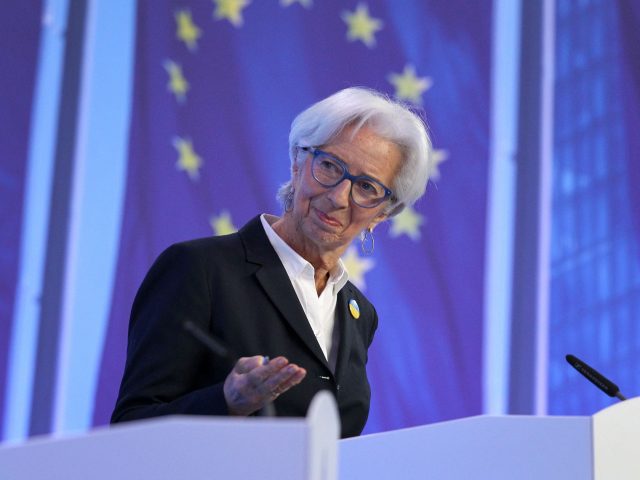The head of Europe’s central bank has claimed that crypto assets are “worth nothing”, but that a future centrally controlled digital Euro would be valuable.
Christine Lagarde, the head of the EU’s European Central Bank (ECB), has claimed that crypto assets are “worth nothing”, and are “based on nothing”.
However, by contrast, the Central Bank tsar went on to reassure the public that a centralised digital currency was coming, and that it would be better than crypto in that the ECB itself would supposedly be able to guarantee its value.
According to a report by POLITICO, Lagarde said that while she had no experience investing in crypto, her son — who apparently has dabbled with blockchain-related assets — has not seen much return.
“I have said all along the crypto assets are highly speculative, very risky assets,” Lagarde is reported as saying in an interview.
“My very humble assessment is that it is worth nothing. It is based on nothing, there is no underlying assets to act as an anchor of safety,” she continued.
Meanwhile, Lagarde claimed that a digital Euro — which would be centrally controlled by the banking tsar and her ECB colleagues — would be a much better asset.
“The day when we have the central bank digital currency, any digital euro, I will guarantee it,” she said. “So the central bank will be behind it. I think that is vastly different from any of those things.”
Lagarde’s comments come shortly after cryptocurrencies such as Bitcoin and Ethereum saw their dollar value fall significantly after the collapse of so-called “stablecoin” Terra, which has since left investors concerned as to the stability of the crypto market overall.
Following the fall, some assets have since seen a partial recovery, with Bitcoin once again trading at over $30,000 a token as of the time of writing.
By contrast, while Lagarde might be very confident in the future of her own EU digital currency, with issues surrounding privacy posed by such top-down Central Bank Digital Currencies leaving questions over the potential popularity for state-backed digital currency.
According to Investopedia, a centralised currency like the hypothetical digital Euro would have to be monitored in a centralised capacity over fears of money-laundering and terrorist financing, meaning that users would likely see their own transactions snooped upon to some unknown degree.
“We’ve seen, in other jurisdictions, a sovereign concentrating that kind of power may not only be for a benign purpose,” Professor Marina Niforos told crypto site Coindesk regarding the risk posed by a digital Euro.
She went on to say that while the EU would not have “less commercial motivations” regarding data gathered by those controlling the currency, “that doesn’t mean that there’s not a danger of misappropriation and misuse of that data.”
What’s more, unlike cryptocurrency, which is decentralised and not controlled by any one body, a centrally controlled currency could also be used as a de facto social credit system, with authorities being able to “programme” funds to prevent tokens from being spent on certain things.
With this factor no doubt being of major concern for the everyday citizen, politically dissidents are even more exposed should their nation-state decide to crack down on them by limiting their spending.
Of course, none of these issues have seemingly prevented the World Economic Forum from endorsing the Great Reset technology, while Communist China has already issued its own digital version of its national RNB currency.

COMMENTS
Please let us know if you're having issues with commenting.